'India has a conviction rate of about 25% for serious crimes. This means that 75% of the time the police probably get the wrong suspect, and this makes murdering them in an encounter more morally problematic for the officers concerned.' says Aakar Patel.
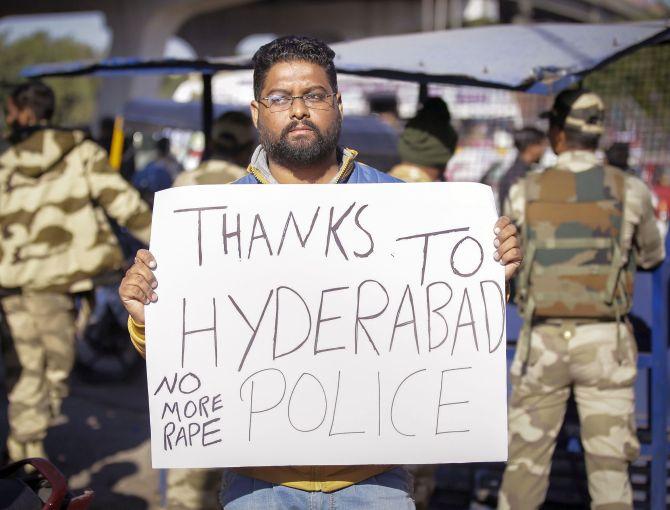
Most policemen do not want to participate in encounters. This has resulted in India producing a category of men called encounter specialists or sharpshooters.
This second word is wrongly applied and we will see why.
First let us see what an encounter is. It is the act of the government taking individuals into custody and then killing them.
Usually, this happens in a secluded area and often at night.
In Hyderabad it happened at 3 am when the police said they were taking the four suspects to 'recreate' the crime scene.
The shooting happens at close quarters and this is what the post-mortem usually shows. Handguns, which is what police officers carry, are not good for distance shooting because their barrels are short and aim is ineffective beyond about 30 feet or so.
This is why the word 'sharpshooter' is wrong. Usually the policeman fires with the barrel pushed into the victim's body or when the person has been beaten and is lying down.
Aim is not needed at this distance, only the willingness to take a life.
The encounter specialist is the policeman who is willing to do the murder at close quarters of unarmed human beings.
In Mumbai, where the encounter culture took root in the 1990s, there developed a small group of men who did the killing.
Daya Nayak (on whom the film Ab Tak Chhappan was made) killed 80 people. Vijay Salaskar, who was killed in the 26/11 attacks, also had a similar number of murders to his name.
Pradeep Sharma had more than 150. All three men were accused of wrongdoing because once such activity by lawmen is condoned, then it becomes difficult to stop other activity.
The question is why most policemen do not do this if there is a reward available (see how the Hyderabad police have been treated like heroes). It is because most of us do not want to kill. Even soldiers.
This may surprise readers. but it is a fact.
The American soldier S L A Marshall studied this phenomenon in a book called Men Against Fire. Marshall's thesis was the soldiers usually fired into the air or into the ground because they were not natural killers and did not want to harm the 'enemy' even if he was being fired upon.
Marshall was writing about the Second World War, but this experience was similar in Vietnam, where American soldiers fired 50,000 bullets for each Vietnamese casualty.
Studies by the Prussians during the Napoleonic wars were similar. When a line of riflemen were asked to shoot into a sheet of fabric at the same distance as the enemy line, their aim was more than 100 times better than when they were shooting at real people.
Most humans are sheep and it is only the rare wolves among us who are willing to kill. Most human beings do not want to take lives and our policemen are not different from the rest of us.
This is fortunate because India has a conviction rate of about 25% for serious crimes. This means that 75% of the time the police probably get the wrong suspect, and this makes murdering them in an encounter more morally problematic for the officers concerned.
The other reason why policemen do not want to participate directly in murders is that it is a crime and could get them into trouble.
That is why we have encounter specialists. No civilised country has encounter specialists. Indeed, functioning democracies don't have encounters at all. It is not possible for police to do this and get away without scrutiny and prosecution in developed nations.
Americans like to say that they are a nation of laws and not a nation of men. India is similar to nations like Philippines where the police is encouraged to break the law, and a criminal act of murder is celebrated as some demonstration of heroism and justice.
Executing people without a trial is not justice. And it is harmful for the cause of justice. It gives elements of the State less incentive to be lawful.
Why do all the work of detection, investigation, interrogation and forensics if we can just round up a few people and shoot them?
And it makes the world see our justice system in a particular way. One of the defence reasons cited by Mehul Choksi, accused in the Punjab National Bank scam, against extradition to India was that he could be killed.
Whether or not this is accepted as an argument in the case, it is difficult to say that it is false. One of the accused in the Nirbhaya case was found hanging in jail and his lawyer says he was murdered, and he probably was.
Activists have described what the police did in Hyderabad as a lynching (and in fact Jaya Bachchan demanded this lynching in Parliament). That is indeed what it is.
What has happened is a reflection on our culture, our politicians, our judges, our media and our population in general.
Aakar Patel is the former executive director of Amnesty International India.
You can read Aakar's earlier columns here.
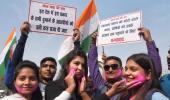
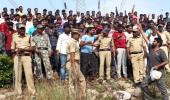






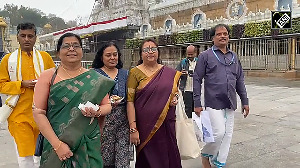

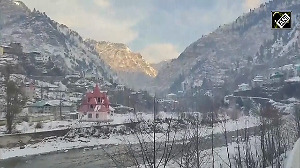
 © 2024 Rediff.com -
© 2024 Rediff.com -